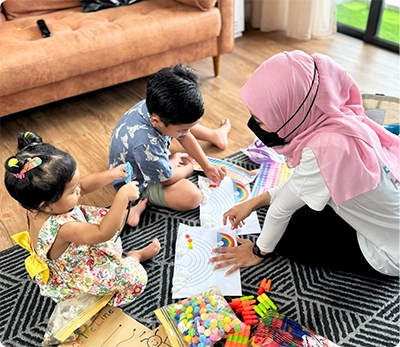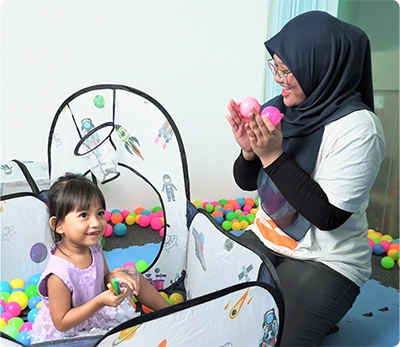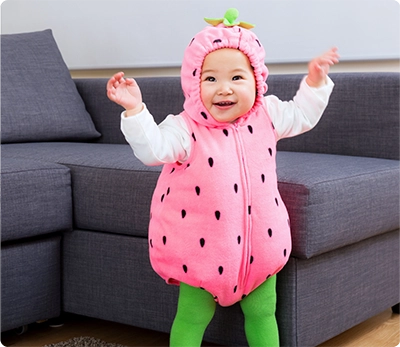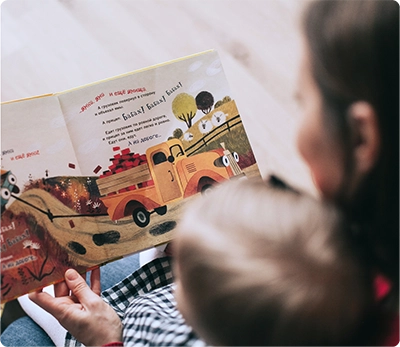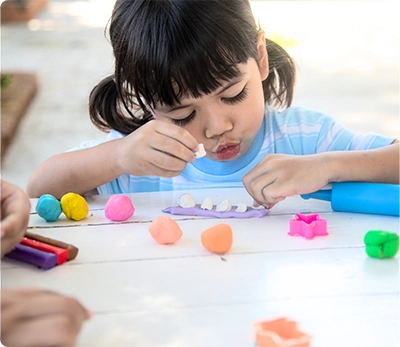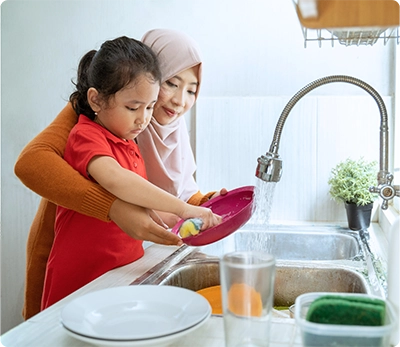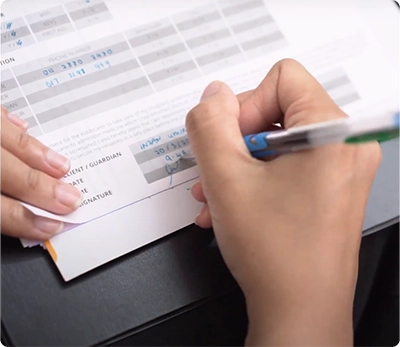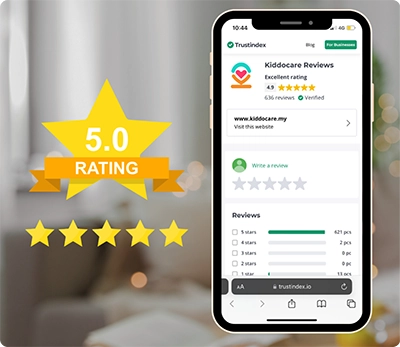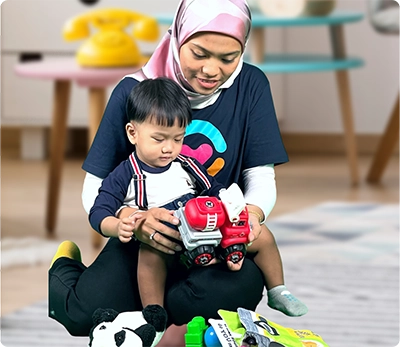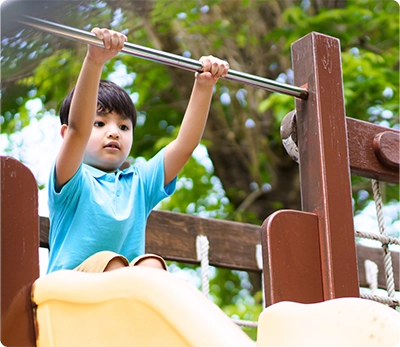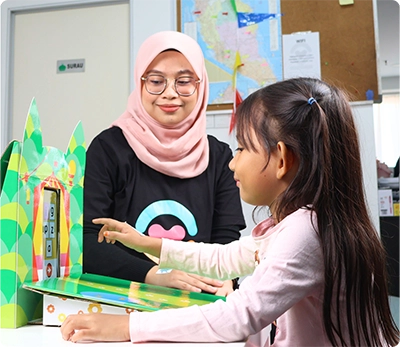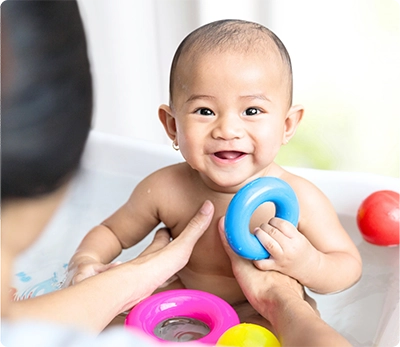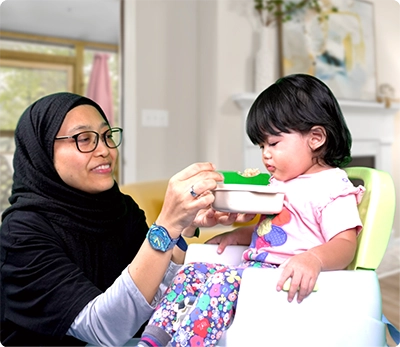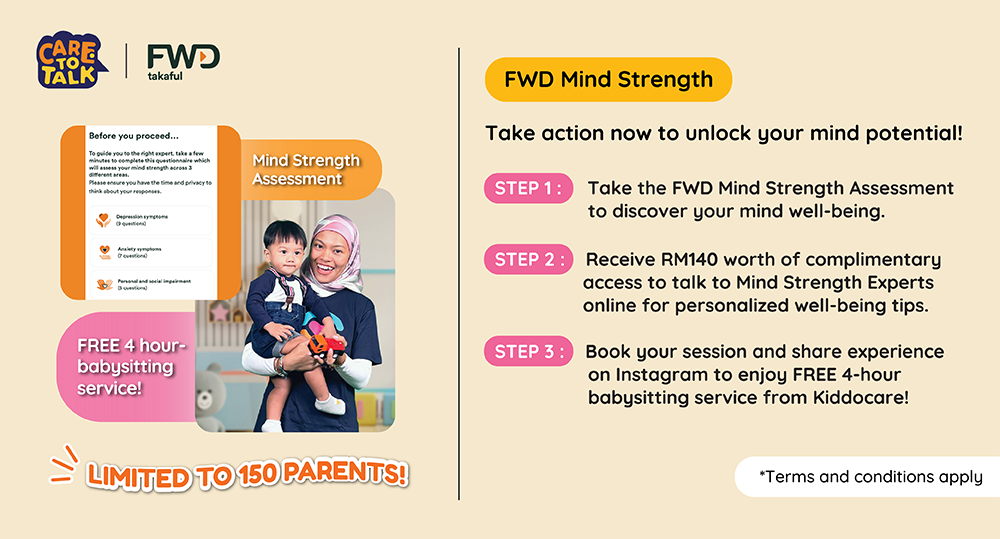4 Health Topics You Should Always Discuss With Your Children
Let’s face this fact. Children are afraid to go to the doctor.
I can hear a lot of ‘YES’ in my head as I am writing this. Going to the doctor is not pleasurable nor is it fun so it’s understandable if they throw a tantrum when you utter the words ‘clinic’ or ‘hospital’.
What can you do to minimize doctor’s visits?
Always discussing healthy topics is the solution. Let your children know that health is an integral part of their lives. Let them know if they want to be like Superman or Wonder Woman, they need to stay fit and healthy. Hence, communicating with them about health is the way to do it.
You are not only saving the trouble of convincing your children to go to the clinic, but you will also instill a proactive approach to their health. They will realize that health should be taken seriously.
Here, we have drilled down 4 healthy topics that you should always discuss with your children.
Talk about Mental Health
First things first, they need to know that health is not only about physical, but also about mental. Your children may seem bewildered when you first start explaining the differences between these two but they will understand as time goes by. Because children and imaginations are like two peas in a pod, provide them with some examples so they can visualize and further grasp what you are telling them.
Questions like ‘how are you feeling today?’, ‘how is school?’ or ‘what did you and your friends play at the park?’ might seem very simple but it will boost your children’s mental health. If they feel uncomfortable, insecure, sad or lonely, always ask them to seek your help. Lend them your support by showing concerns about them. There are times when your children might be in the wrong; that the emotions they are feeling that have caused them to experience are from their own mistakes. For instance, your children may have bullied someone due to peer pressure.
You may think of punishing them but this will actually make them feel lonelier. You should instead listen to their whole story and advise them to think if their actions are good or bad. Create a safe space by asking gently the reason(s) behind their actions and tell them to only do good deeds to people.
Don’t forget to regularly have conversations relating to mental health with your children.
Advise Them on Processed Food Intake
It’s a no-brainer that children love processed food. It’s finger lickin’ good. Everywhere you go, it’s there! But we all know how unhealthy it is. Eating too many chips, burgers, desserts and chocolates can put your children at a higher risk for heart disease, cancer and diabetes than those who do not eat or only consume at a minimum rate.
Now, you may ask, ‘how about changing to organic bars that I always find at grocery stores?’ The answer is still a ‘NO’. We’re not kidding. Believe it or not, those are also highly processed and contain a high level of sugar. Of course it is better, but that does not change the fact that it is still high in calories and sugar and should only be consumed once or twice a week.
As a parent, you need to inform your children on the bad effects of eating processed food. Make them aware of what will happen if they eat too much high calorie, low nutrition food. Furthermore, give them plenty of choices of food that are good for them; eggs, milk and yogurt. When serving a plate filled with vegetables, make sure to cut them into small pieces and try choosing vegetables other than greens like carrots or tomatoes.
Always Be on the SAFE Side
Children do not have any worries as they are more active and eager to explore the world around them. This means that injuries may happen to them at any given moment. So planning ahead is appropriate to minimize your children’s potential risks of injuries.
You should educate your children that wearing a seat belt or helmet is a must whenever they are in a car seat or riding a bike or scooter. If a head injury does occur, your children need to lie down and rest. Resting means no gadgets, books or activities until the brain fully heals. However, if the injury warrants a checkup, then going to the hospital is the best route to go.
Moreover, inform them they need to tell the teachers if there’s any injury that occurs during their play time at school. You can teach your children how they can avoid injuries, such as those resulting from unexpected falls at the playground. You may also demonstrate safe behaviors when crossing the roads or queuing for a line. In this way, the risks of injuries can be minimized.
Practicing Good Hygiene Habits
Without good hygiene, your children will fall sick pretty often. Keeping themselves clean not only they can be healthy but they will also feel awesome about themselves as it will boost their self-esteem and confidence.
You need to start teaching them how to shower or bathe properly. You need to make sure they wash every part of their body. Some children think that shampooing is a waste of time, they don’t know just yet that shampoo can actually do them good. Try explaining to them that shampoo can make their hair smell good and keep their scalp clean.
This next one seems like a pretty easy feat but still, a lot of children may turn a blind eye to it. It’s no other than washing hands. Children like to play with dirt and touch things without having a second thought, resulting in germs spreading through hand contact. Regularly washing hands… no… let me add, regularly washing hands WITH SOAP will prevent your children from getting sick. Encourage them to do so if their hands look dirty or after going to the bathroom.
Don’t also forget to teach them things like covering their mouth when they cough or sneeze, wearing clean clothes and brushing and even flossing their teeth.
Now, your children don’t have to go to the doctor that often!
Written by:
Ian Firdaus




